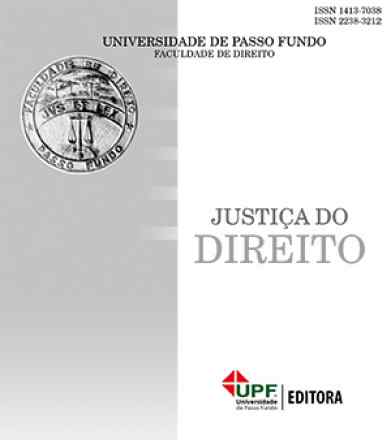O DIREITO POSITIVO FRENTE À DIMENSÃO JURÍDICA DA CULTURA INDÍGENA
REVISTA JUSTIÇA DO DIREITO
O DIREITO POSITIVO FRENTE À DIMENSÃO JURÍDICA DA CULTURA INDÍGENA
Autor Correspondente: L. S. Ribeiro | [email protected]
Palavras-chave: Comunidades indígenas, cultura, direito consuetudinário, direito positivo.
Resumos Cadastrados
Resumo Português:
O direito é reflexo dos valores culturais da sociedade. A organização dessa sociedade determina a forma como o direito é expresso, podendo ser positivo ou consuetudinário, se possuem ou não uma instância formal de emanação do poder. No Brasil o sistema jurídico é positivista, contudo, nas comunidades indígenas há regras de convivência, inclusive de natureza penal, sem formalização ou institucionalização. As comunidades indígenas como sujeitos sociais, clamam ser inseridas em um novo Estado e sua própria Constituição, a partir de um território pluricultural. É a dimensão jurídica das relações sociais na condição de manifestação cultural, cujo reconhecimento pelo ordenamento nacional positivista é possível, com abrangência limitada à própria comunidade e cuja aplicação garanta acesso à justiça por paradigmas variáveis, pois várias são as nuances culturais de comunidades tradicionais, como as indígenas. A pesquisa traz uma abordagem qualitativa do tema, com método dedutivo hipotético, fomentado na revisão bibliográfica.
Resumo Inglês:
Law is a reflection of the cultural values of society. The organization of this society determines how law has been expressed, whether it be positive or customary, whether or not they have a formal instance of emanation of power. In Brazil the legal system is positivist, however, in the indigenous communities there are rules of coexistence, including of penal nature, without formalization or institutionalization. Indigenous communities as social subjects, claim to be inserted in a new State and its own Constitution, from a pluricultural territory. It is the juridical dimension of social relations in the condition of cultural manifestation, whose recognition by the positivist national order is possible, with limited scope to the own community and whose application guarantees access to justice by variable paradigms, since several are the cultural nuances of traditional communities, such as the indigenous. The research brings a qualitative approach to the topic, with a hypothetical deductive method, promoted in the bibliographic review.

